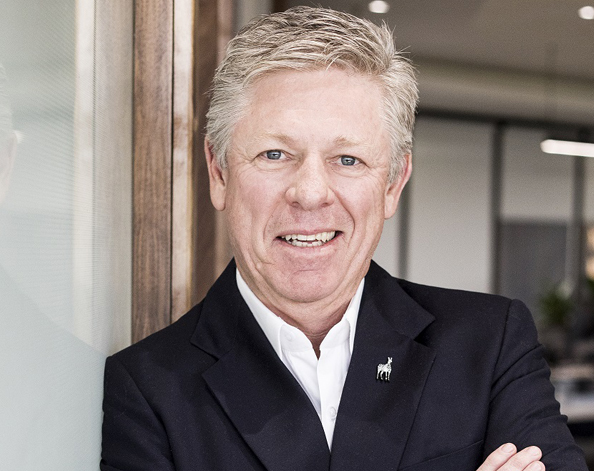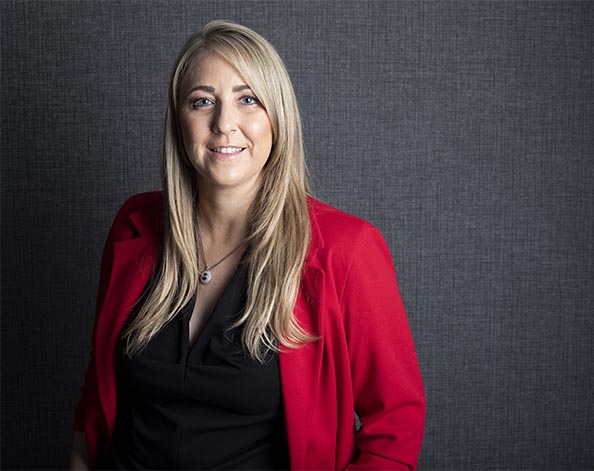Sustainable finance is nothing new, but across the globe, countries and their financial institutions are at various stages in the sustainable finance journey.
Some are clearly at a more advanced stage, but what major gatherings such as COP26 have shown, is global alignment on key issues is crucial to not only effect policy change, but also unlock investment to further the United Nations’ Sustainable Development Goals.

The financial sector globally has a critical role to play in the financing of a clean carbon transition. In SA, we have an even more important responsibility to ensure the transition is fair, inclusive and green.
Speaking at the BASA Sustainable Finance Conference hosted at Investec in November, he went on to say, "We've already embraced this responsibility and a concerted effort is underway to establish South African banks as proactive, committed stakeholders that can demonstrate to the rest of the world how an emerging economy can lead in this space.”

It's encouraging, therefore, to see two South African financial institutions, namely Investec and the Johannesburg Stock Exchange, joining the Global Investors for Sustainable Development Alliance, which itself is a step in the right direction, as this alliance looks to solve one of the biggest issues facing sustainable development - urgency.
The GISD Alliance seeks to deliver concrete solutions to scale-up long-term finance and investment in sustainable development. It consists of 30 leaders of major financial institutions, spanning all regions of the world.
“What the fund is trying to do is create a blended finance model, where the multilateral development banks will come in and you'll get this concessional financing, where you're balancing and trying to de-risk so that the retail banks can come in,” said Tanya dos Santos, Global Head of Sustainability at Investec.

The biggest issue is scale because there are little projects happening everywhere and this is not going to get us to where we need to be.
Sustainable Finance ‘growing’ on banks and investors
There is no doubt that environmental, social, and governance (ESG) considerations have become a priority when investors decide where to put their money. According to a World Economic Forum report in July investment funds that use ESG considerations have more than $50 trillion in capital and are “growing fast.”
Further to that, it cited a May piece in The Economist that claimed that an average of two new ESG-focused funds were being launched every day.
Receive Focus insights straight to your inbox
There’s been a shift in mindset in recent times, said Heidi Barends, the Sustainable Finance, Corporate and Investment Banking Head at Absa Bank.
“Traditionally, it was very much a risk-return consideration, but over time it's really become ‘how do we become a responsible investor’?” she said. “’ How do we become a sustainable investor?’ So, it's not just ‘where's our money going, but, ‘what is our money doing and how does it help society and the planet’,
How does SA transition without destabilising the economy?
In South Africa, a ‘just transition' to a low-carbon economy must be conducted in a way that addresses the issues unique to us. That means installing more clean energy facilities, accelerating the country’s transition away from coal power, and softening the impact on workers affected by the shift – all of this without scuppering South Africa’s economic growth.
“We need to have a broader conversation beyond coal in Mpumalanga. What are the macro-economic impacts of reducing R50 bn worth of export earnings from the South African economy? How do we replace those foreign currency earnings in order to reduce the risk of the balance of payments de-stabilising?"
"How do we also deal with the inflationary impacts of the shift away from fossil fuels? This is just one example of how the transition is not just a linear story about socio-economic development it's also a macroeconomic stability question," asserts Simi Siwisa, Head of Public Policy at Absa Bank.

SA’s sustainability swagger
But, as Wainwright points out, South Africa is hardly late to the party when it comes to sustainability thinking.
In fact, the Johannesburg Stock Exchange was the first emerging market and the first stock exchange globally to launch a sustainability index – the JSE Socially Responsible Investment index - back in May 2004 and, according to Wainwright, the local banking sector established the BASA Sustainable Finance Committee as far back as in 2011, when the topic was barely on the global radar screen.
“We are also amongst the best performing emerging markets on the Sustainable Banking and Finance Network rankings,” said Wainwright.
Gauging financial institutions commitment to the cause
There is little doubt that there is currently a lot of innovation in the ‘green’ space, particularly from a technology perspective. So, lots of work being done in renewable energy, in battery storage and green buildings, electric vehicles and other future technologies.
But, is there the corresponding innovation in the banking sector and are our financial institutions committed to taking a long-term view and funding businesses and initiatives that have a sustainable focus?
Nigel Beck, Head of Sustainable Finance and ESG Advisory at First Rand, has a view.
“What we as financial institutions need to be doing is to say, ‘how do we consider these from a bankability perspective’?” he said. “And how do we as financial institutions manage the technology risk against the missed opportunity? So, in other words, how do you manage not financing the next growth business, because you're not entirely comfortable with the technology, or there's not a lot of history, because it's relatively new technology?”
That just re-emphasises the importance of a more innovative approach to sustainable finance and not a ‘one size fits all’ traditional model, which must be something all banks are grappling with, as sustainable finance grows in prominence and importance.
“As a bank, we're obviously constrained by what our capital requirements are, so if there's these innovations, such as electric vehicles, or green hydrogen etc, we need to find a different way to finance them, because they are seen as riskier,” said Barends.
“Following the traditional banking model, we would obviously be required to hold more capital against them, which makes the interest rate more expensive, which leads to a bit of a spiral of things that you don't want to happen.”
Barends acknowledges that things need to change, particularly for those banks that operate under regulations that could be viewed as ‘constraining’, as it relates to sustainable finance.
There clearly has to be a different type of thinking applied to this area of financing and this is where the bravest, boldest and most forward-thinking banks look set to prosper.

Beware the greenwashing
Greenwashing washing was highlighted as one of the pitfalls that could detract from the progress being made in sustainable financing.
So, what is “greenwashing”?
According to Investopedia "greenwashing" refers to the practice of conveying a false impression or providing misleading information about how a company's products are more environmentally sound and is considered an unsubstantiated claim to deceive consumers into believing that a company's products are environmentally friendly.”
Surely, then, it comes down to due diligence, developing an effective methodology, looking at the track record, and challenging the interested parties?
There’s another school of thought – one that believes that ESG data should be seen and treated as ‘fundamental data’ rather than ‘alternative data’.
That’s the view of David Craig, the CEO of Refinitiv, the global provider of financial market data and infrastructure.
“This classification puts ESG data on a par with all other investment grade data that informs institutional decisions regarding the allocation of capital,” says Craig.
It’s a data-led approach that Wainright is in favour of.
“In terms of the challenges we are experiencing and the blockages that need to be overcome, we need to expand our climate-related disclosures to require better data and a more aligned scientific approach to sustainability and climate reporting,” he said.
It’s also important to apply that due diligence across the board in all areas – not just as it relates to environmentally-friendly practices, but all facets of corporate governance.
“Too many corporates are just looking at their own diversity as an example, and going ‘okay, well, we'll just appoint more females on the board and now we tick that we've met that criteria’,” said Dos Santos. “For me, what's exciting is what you can actually do through your businesses through these types of loans and bonds.”
For example, Investec’s UK business put together a sustainability-linked loan with a company that specialises in learning, development and training. It was linked to four KPIs and those KPIs were very specific around diversity, gender, ethnicity, disability, and youth.
“That's where we, as banks, can have a much greater impact,” said Dos Santos.
And surely impact is what it’s all about?
In particular, for institutions that have the financial clout to effect material change, adapt their mindset and product offering, and educate their clients.
All of this within the framework of a South Africa attempting to transition in a ‘just’ manner and searching for the financial solutions to do that.
Put simply, effective and innovative sustainable finance has the ability to be the lever to drive South Africa’s sustainable growth.




